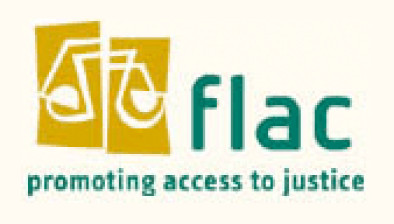FLAC: Mortgage lenders have too much control over resolution outcomes

Mortgage lenders have too much control over outcomes under resolution processes introduced since the global financial crisis, legal rights group FLAC has said.
In the second of a series of four papers, FLAC examines the difficult question of family home mortgage arrears, a problem that continues to have a massive impact on the lives of many Irish families in the aftermath of the economic crash of 2008.
New mortgage arrears cases have arisen as a result of the Covid-19 pandemic and the withdrawal of Covid related income supports over time may give rise to further cases or deeper mortgage arrears for current borrowers.
According to a recent paper from the Central Bank of Ireland, a total of over 95,000 PDH (private dwelling wouse) mortgage accounts one in eight are forecast to have a ‘balance shortfall’ at the end of the mortgage term.
Senior policy analyst Paul Joyce said: “It is clear that the current system of resolution is not working effectively for borrower or lender, or indeed the taxpayer. Further mortgage arrears (and general personal insolvency) cases arising out of Covid-19 may present a significant challenge but they also present an opportunity.
“Apart from treating these new cases with the compassion and decisiveness they deserve, given that the ultimate event that gave rise to them - a global pandemic - is outside of the borrower’s control, there is an opportunity to re-examine the legacy cases in a more open and systemic way and to reach resolutions in as many cases as possible for once and for all.”
According to FLAC, mortgage arrears and restructures data from the Central Bank demonstrates that lenders have failed in many cases to take the opportunity presented by the mortgage arrears resolution process (MARP) of the code of conduct on mortgage arrears (CCMA) to put in place an affordable alternative repayment arrangement.
For example, a substantial percentage of the borrowers currently in arrears who are deemed to be cooperating by their lender - around two in every three — have not been offered a restructure by their lender.
In addition, the options provided to borrowers under the personal insolvency legislation have delivered insufficient numbers of legally binding arrangements, and recent reforms to the legislation concerning repossession remain unused.
Mr Joyce said: “There needs to be a re-examination of the role of the court system in mortgage arrears cases and a clear route for people to exit the resolution process system. In our view, recourse to the legal system in mortgage arrears cases should be a last resort.
“Passing a case onto the courts to deal with, even though the problem is usually not about determining legal right or wrong (the normal business of the courts), is indicative of a state failure to take responsibility for the outcomes of a lending model that facilitated reckless lending and ultimately failed many borrowers.”
FLAC’s paper makes 18 recommendations, including that the CBI improve lender reporting mechanisms in relation to all aspects of arrears and repossession data gathering and investigating apparent anomalies in the data provided by the lenders.
It also recommends that the CBI accompany its data releases with a commentary on the evolving debt situation post-Covid including what additional measures and supports are required.
FLAC also proposes that the CBI and the Insolvency Service of Ireland (ISI) together provide more comprehensive data on the role of personal insolvency arrangements in mortgage arrears cases.











